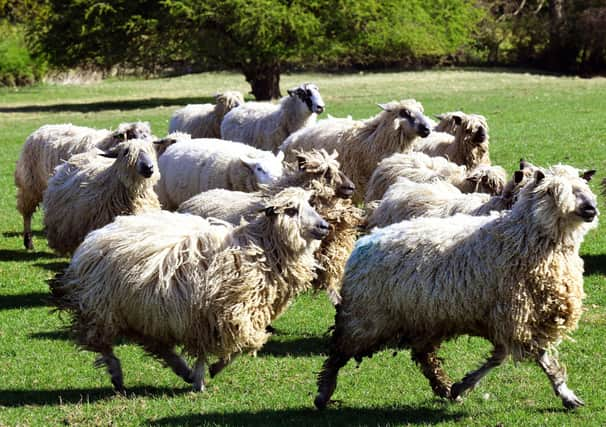FARMING: ‘Tis the season to be jolly… bothered by flies!


Rabbits and sheep are often affected by fly strike, and horses can suffer from Sweet Itch (a hypersensitivity to insect bites – specifically culicoides midges in many cases).
The flies also affect the more invasive procedures we carry out in horses, with many colt castrations and laser sarcoid removal procedures being postponed until the flies have died down in the autumn.
Advertisement
Hide AdAdvertisement
Hide AdIn some cases, flies are also involved in other skin disease in horses, often as part of a range of allergies to various substances horses have allergies to insects too.
Fly control in all animals can be very tricky.
The mainstays of fly control are to ensure the hygiene of the environment in which the animal is kept is of a high standard, avoid standing water, use fly repellents, and avoid being outdoors during the times of the day flies are worst (this changes depending on which flies you want to avoid – avoid dawn and dusk if you want to avoid midges).
There are some fly repellents which are better than others, but none of them are perfect.
Sweet itch in horses is seen as a seasonal itchiness and rubbing out of mane and tail hairs.
Some horses rub other areas too.
Advertisement
Hide AdAdvertisement
Hide AdWhen trying to manage sweet itch, fly rugs are often advised to prevent the flies having access to large areas of the skin of the horse.
Topical insecticidal and fly repellent products can be used once weekly to help prevent the appeal of the horse to midges, and avoiding turnout near standing water, and during dawn and dusk can be helpful.
Other treatments can be attempted to desensitise the horse to the salivary proteins of the midges which it is having a reaction to.
Flies aren’t the only insect that can cause issues for horses, feather mites frequently cause intense itching of the lower leg region of heavily feather horses.
Advertisement
Hide AdAdvertisement
Hide AdThey can affect all horses, but the feathering of some cob-types predisposes them to these issues!
These delightful creatures (pictured here down a microscope) are often tricky to treat, with various options available.
Many of these require a prescription or drugs to be injected.
Various other forage mites and free-living mites on pastures can also be associated with allergic reactions in horses too.